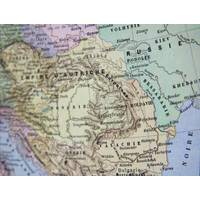New DOT Brake Rule Angers Rail Industry
U.S. regulators took on the powerful rail industry on Friday, announcing plans to require expensive, high-tech braking technology the railways insist is unproven and unreliable.
Regulators say the new electronically controlled pneumatic (ECP) brakes could reduce the severity of crashes, preventing pile-ups. Canada has promised to "harmonize" its regulations with the United States.
The U.S. rule goes into effect in 2021 and only applies to trains with 70 or more tank cars. Estimates published with Friday's announcement said ECP brakes could cost the U.S. industry $492 million between 2015 and 2034.
Because of their common carrier obligations, railways are required to ship dangerous goods even if they would rather refuse the business.
The decision has angered the North American rail industry, but Transportation Secretary Anthony Foxx said his department believes it will stand up to any legal challenge.
The Association of American Railroads (AAR), which has lawyers studying the rule, slammed the government for basing its decision on the results of simulations, data the association said was flawed.
"The DOT (Department of Transportation) couldn't make a safety case for ECP, but forged ahead anyhow," said President Edward Hamberger. "This is an imprudent decision made without supporting data or analysis."
Under the new rule, from 2021 to 2023 railways can choose to slow designated trains to 30 miles per hour instead of using ECP brakes, but the AAR said that could reduce network capacity.
Unlike traditional systems, ECP brakes kick in at the same time along the full length of a train, reducing tension between cars. While not widely used in North America, they are not completely unknown. Burlington Northern Santa Fe started installing them on some coal trains in 2008.
Joseph Szabo, who was head of the Federal Railway Administration until January, praised the move, saying it would reduce stopping distances and cut the risk of pile-ups.
"DOT is to be applauded for aggressively moving the ball forward on crude by rail safety," he said.
After a runaway oil train derailed and exploded in the Quebec town of Lac-Mégantic in 2013, killing 47 people, Canada's Transportation Safety Board highlighted ECP brakes as one technology that could prevent runaway trains, but stopped short of recommending they be made mandatory.
CSX Corp said it was "deeply troubled" by the brake requirement, and that ECP brakes have not been proven in regular service.
Canadian National Railway Co said it has serious concerns about the reliability of ECP brakes in winter.
Canadian Pacific Railway Ltd spokesman Martin Cej said the change would force the industry to spend millions on technology with no proven safety benefit.
"CP is dismayed by a policy that legislates railways to transport dangerous goods, then forces the railways to slow down the shipments of all other goods," Cej added.
Reporting by Allison Martell, Patrick Rucker and Jarrett Renshaw

